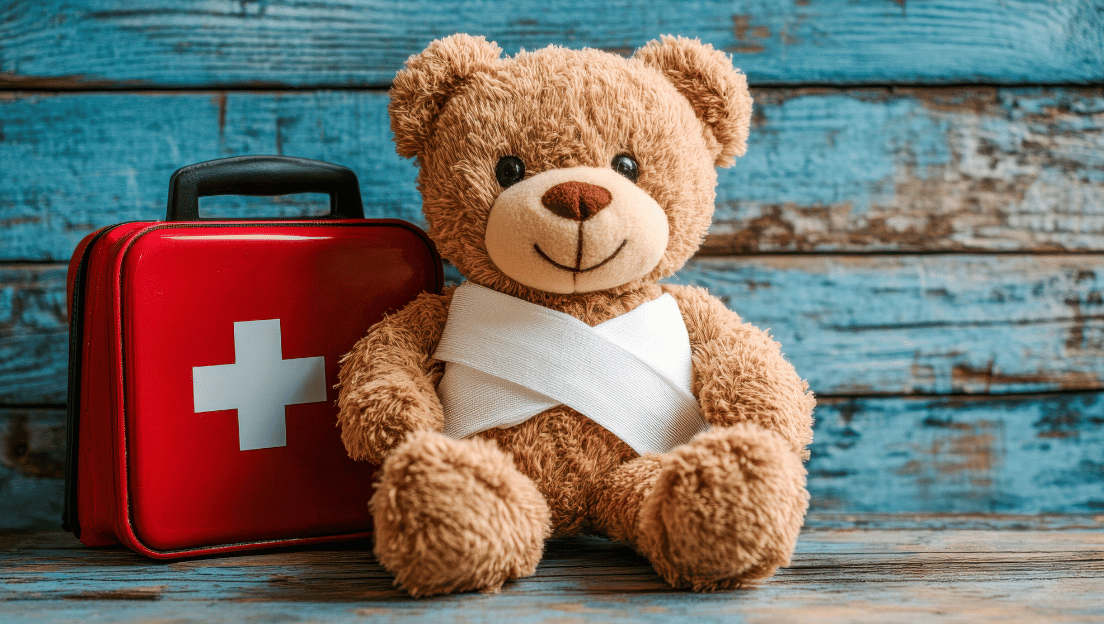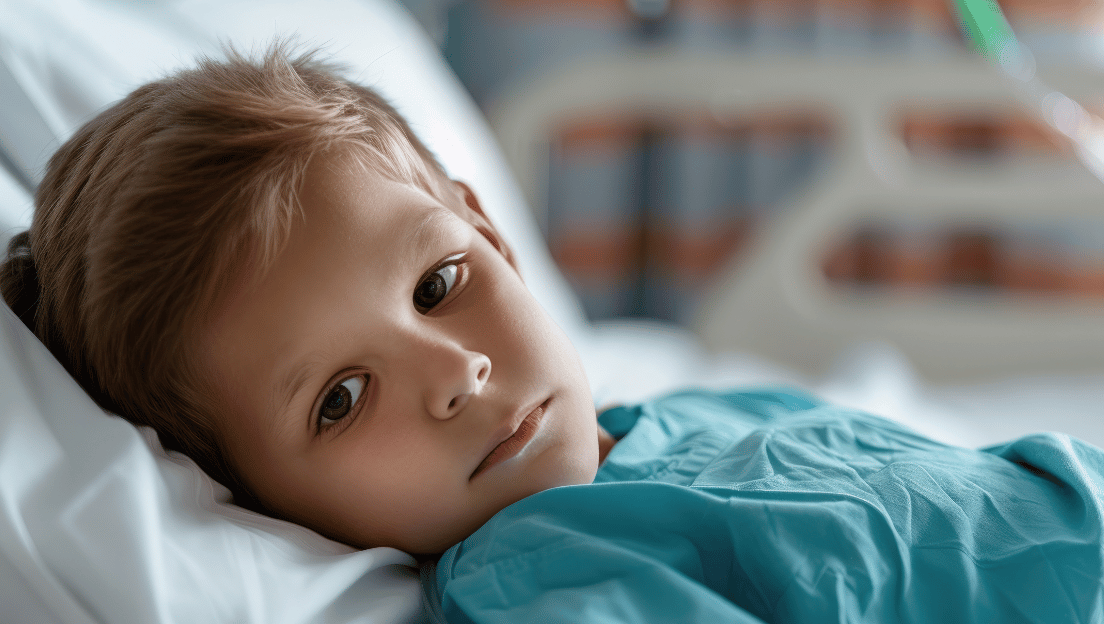As a parent, your child’s health is your top priority. But sometimes, it’s hard to know when a cough, fever, or fall is serious enough to rush to the emergency room (ER). While most childhood illnesses and injuries aren’t emergencies, some symptoms demand immediate medical care and attention. Waiting too long could put your child’s life at risk.
This guide will help you recognize the red flags that signal a true medical emergency. Trust your instincts—if something feels off, don’t hesitate to seek help from clinics’ emergency departments.
Trouble Breathing or Severe Wheezing
If your child is struggling to breathe, don’t wait before calling for emergency medical services. Signs of respiratory distress include:
- Rapid, shallow breathing;
- Gasping or flaring nostrils;
- Grunting with each breath;
- Ribs or chest pulling in with each breath;
- Blue or gray lips or face; and so on.
A mild cough or stuffy nose is normal, but if your child can’t speak, eat, or drink because of breathing trouble, head to the ER. Asthma attacks, severe allergic reactions, or pneumonia are emergency medical conditions and can escalate quickly in kids.
Looking for a health care provider for your kiddos’ emergency care needs, you can look at various online resources like https://www.idahofallscommunityhospital.com/ and others.
Unstoppable Bleeding
Kids get cuts and scrapes all the time, but some bleeding needs emergency care at an urgent care clinic or other certified health care provider.
Be on the lookout for the following scenarios because they’re considered emergency medical conditions:
- Blood is spurting and isn’t just dripping;
- Pressure doesn’t stop bleeding after 10 minutes;
- The wound is deep or gaping; and
- An object is stuck in the wound, such as glass or metal.
Emergency departments are designed to help your kid’s unstoppable bleeding right away with stabilizing treatment and other helpful life-saving care.
Severe Head Injury or Loss of Consciousness
Kids bump their heads often, but some head injuries are dangerous. Luckily, health care systems’ emergency departments and their first responder teams can perform a medical screening examination right away.
Don’t hesitate to avail of emergency medical services if your kiddo happens to exhibit the following: passing out, even briefly, vomiting repeatedly after a head injury, showing confusion, dizziness, or unusual sleepiness, seizuring, and the like.
A concussion might not be life-threatening, but a brain bleed (hematoma) is. Better safe than sorry.
High Fever with Other Warning Signs
Fevers are common in kids, but some require emergency care from a certified health care provider. Seek help if:
- A baby under three months has a rectal temperature of 100.4°F (38°C) or higher;
- A child of any age has a fever over 104°F (40°C);
- The fever lasts more than three days;
- Your child has a rash that doesn’t fade when pressed because it could indicate sepsis; and
- They’re lethargic, refusing fluids, not urinating, or not showing any positive vital signs.
A fever alone isn’t always an emergency, but combined with the abovementioned symptoms, it could signal a serious infection that warrants emergency medical services. If left untreated, it could progress to something that calls for critical care as well as advanced life support.
Seizures (Especially if it Happens for the First Time or it is a Prolonged Episode)
If your child has a known seizure disorder, follow their doctor’s advice. But if it’s their first seizure, or if:
- The seizure lasts longer than 5 minutes;
- They have trouble breathing or turn blue;
- A second seizure happens right after the first;
- They don’t wake up or stay confused afterward; and the like,
…call emergency services.
Febrile seizures (from high fevers) are common in toddlers and usually harmless, but prolonged seizures need immediate treatment from your hospital department’s emergency unit.
Severe Dehydration
Kids can dehydrate fast, especially with vomiting or diarrhea. Watch for the following symptoms:
- There are no tears when your kid’s crying;
- Dry mouth or cracked lips;
- Sunken eyes or soft spot (in babies)
- No urine for 8+ hours (or very dark urine)
- Extreme sleepiness or irritability
If your child can’t keep fluids down or shows these signs, they may need intravenous medications and emergency medical care at the hospital.
Poisoning or Swallowing Harmful Substances
If you suspect your child swallowed something toxic—like medicine, cleaning products, or batteries—don’t wait for symptoms. It’s an emergency medical condition. Button batteries and magnets are especially dangerous—they can burn through tissue in hours.
Phone your local poison control office or go to the ER immediately.
Signs of poisoning range from sudden vomiting or drooling, burns around the mouth, and difficulty breathing to unusual drowsiness or agitation
Severe Pain (Especially if it is Sudden or Localized)
Kids complain of aches often, but severe pain could mean:
- Appendicitis (pain starts near belly button, moves to lower right side);
- Testicular torsion (sudden, extreme groin pain in boys);
- Broken bones (especially after suffering from an accidental fall);
- Severe headache with neck stiffness (possible meningitis); and the like.
If your child is crying uncontrollably from pain or can’t move a body part, get help fast.
Severe Allergic Reaction or Anaphylaxis
A life-threatening allergy can escalate in minutes. Look for swelling of the face, lips, or tongue, hives or widespread rash, trouble breathing or wheezing, and the like.
If your child has a known allergy, use their epinephrine auto-injector (EpiPen) and call the public health authorities. Even if symptoms improve, they still need emergency care—reactions can rebound.
Unusual Behavior or Extreme Lethargy
If your usually energetic child is suddenly not themself, there’s something really wrong with them.
Be on the lookout for the following symptoms:
- Your child’s too weak to lift their head;
- They’re unresponsive or hard to wake up;
- They’re confused or not recognizing you; and
- Your kid’s hallucinating or slurring their speech.
Possible causes include severe infection, low blood sugar, or head injury.
Burns that Blister or Cover a Large Area
Minor burns can be treated at home, but seek emergency care if your kid has severe burns.
Wondering what to look for? They’re the following: the burn is larger than your child’s palm, it’s on the face, hands, feet, or genitals, the skin looks charred or white, and blisters form quickly.
Chemical and electrical burns need immediate attention as well.
When in Doubt, Trust Your Gut
You know your child best. If something feels wrong, don’t second-guess yourself. Even if it turns out to be minor, it’s better to get it checked. Delaying care for a true emergency can have serious consequences.
Keep emergency numbers saved in your phone, and don’t hesitate to call your emergency departments’ numbers if your child’s condition seems life-threatening. Quick action can save lives.
Closing Thoughts
Kids are resilient, but some situations need urgent medical care. Recognizing these warning signs could make all the difference.
Stay calm, act fast, and remember—you’re not overreacting when it comes to your child’s health. When in doubt, err on the side of caution. Your quick response could be what saves them.





